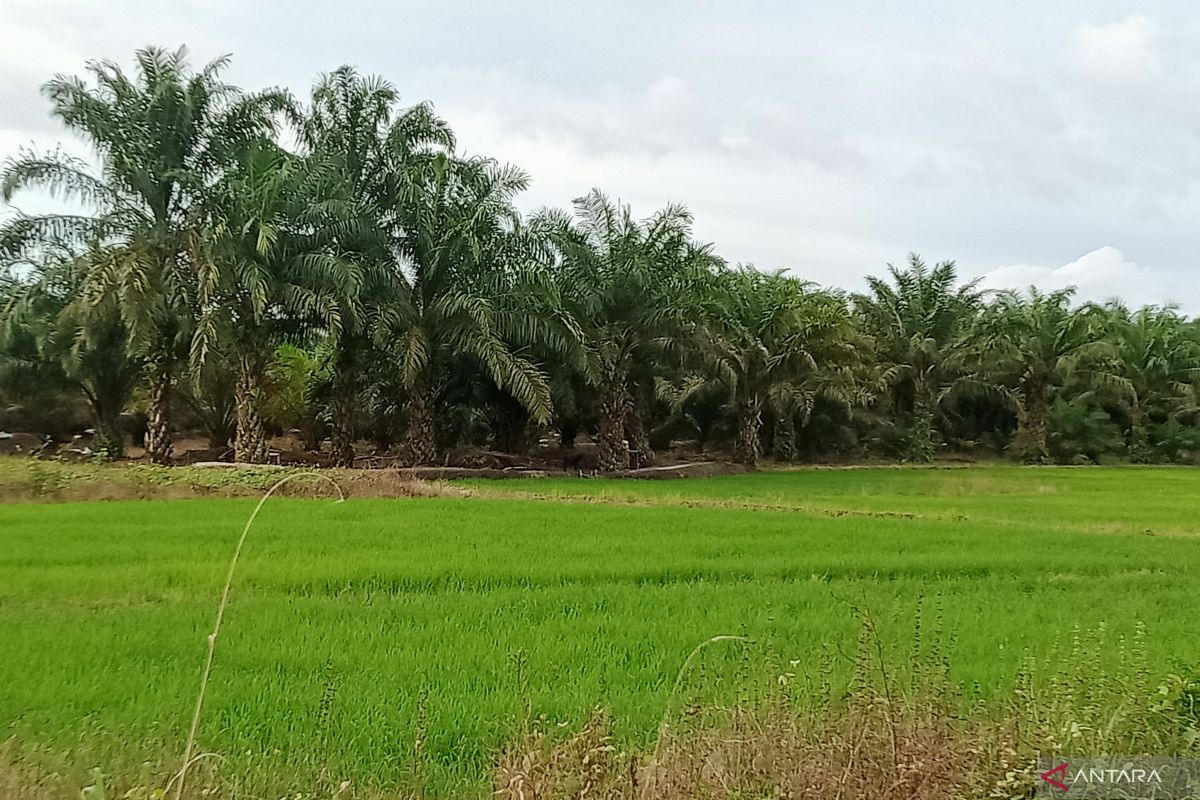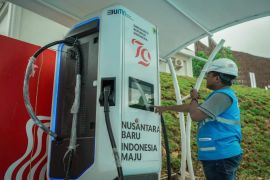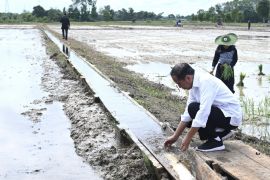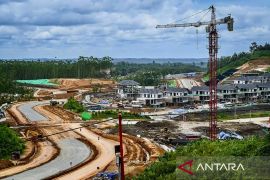Penajam, East Kalimantan (ANTARA) - The government will prepare 10 percent of land in the new capital Nusantara’s (IKN’s) area in North Penajam Paser and Kutai Kartanegara districts, East Kalimantan province, for food security.
"The information we have received is that 10 percent of the area of Nusantara's IKN is prepared by the central government for food security," acting officer of North Penajam Paser District Food Security Service Bambang Surijadi said here on Friday.
Geographical conditions in a part of North Penajam Paser district, which has been designated as the main area of Nusantara, namely Sepaku district, are suitable for food crops.
Surijadi said that the land in Sepaku district is fertile. Therefore, the opening of new paddy fields and horticultural crops in the Nusantara area can be carried out.
The North Penajam Paser district government is trying to increase rice production to meet food needs in the National Archipelago National Park.
Every year, rice production in Benuo Taka area reaches around 32 thousand tons.
He said the demand for rice from the people in North Penajam Paser district, which has a population of around 190 thousand, is currently around 16 thousand tons per year.
Thus, North Penajam Paser district records a surplus production of about a dozen tons of rice every year.
If the population of Nusantara reaches around 1 million people, the demand for rice will reach 95 thousand tons per year, Surijadi estimated.
The provincial government of East Kalimantan is also preparing agricultural land in Kutai Kartanegara and Paser districts to meet the food needs in the capital.
"The potential for the livestock and fisheries sectors must be developed because the residents also need meat and fish," he said.
The need for food in Nusantara will increase with the development of the region.
Related news: BRIN pushes development of functional food to boost food security
Related news: KSP underlines potential for El Nino-linked crop failure in 2023
Related news: Need to improve local food development to anticipate crisis: BRIN










